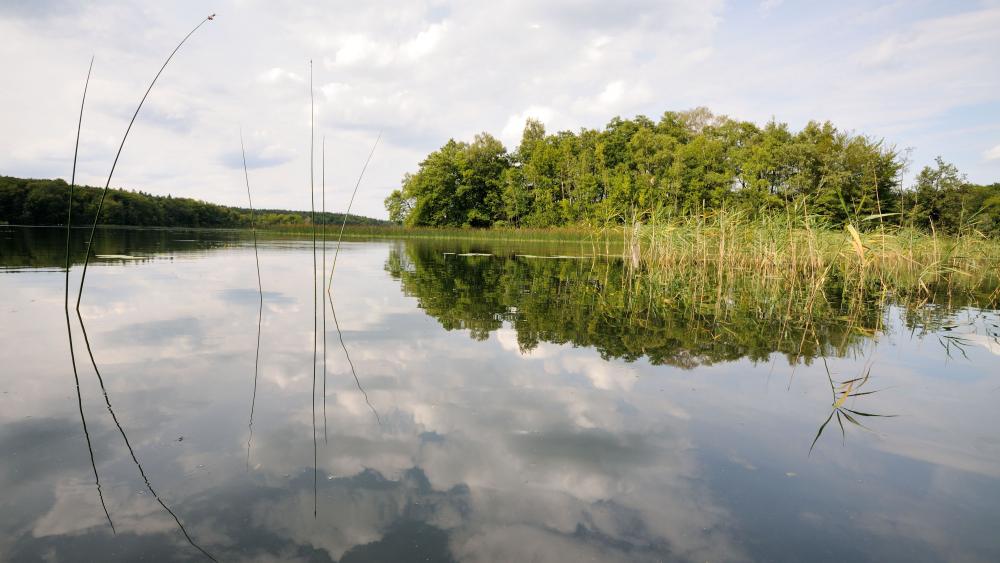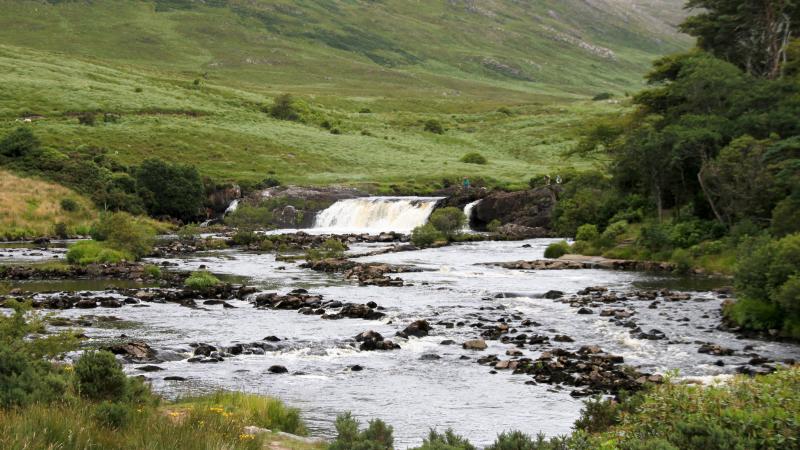
Complex interactions in water bodies are difficult to decipher. | Photo: Michael Feierabend
Biodiversity is changing and so are ecosystem functions. But what does this do to biodiversity in feedback? An important connection, but it is still difficult to decipher complex interactions in natural ecosystems.
An international research team analysed long-term time series data (16-41 years) from 19 aquatic ecosystems around the world using a novel causality analysis called Cross-Convergent-Mapping (CCM). Their analysis reconstructed the causal networks in lakes and quantified the key interactions between phytoplankton diversity, total phytoplankton biomass as an ecosystem function and various environmental factors such as temperature and nutrient levels.
In nutrient-poor lakes, higher diversity means more biomass for phytoplankton
The cross-system comparison revealed macroecological patterns: In more diverse, nutrient-poor lakes, phytoplankton biodiversity was a more important driver of its biomass than environmental factors such as nutrients and temperature. However, the strength of the effect was much weaker in warm and nutrient-rich lakes.
For more complex feedbacks, phytoplankton diversity tends to regulate phytoplankton biomass through nitrogen-based feedback regulations in warm and productive environments, while through phosphorous-based feedback in cold and less productive environments. These macroecological patterns improve our understanding on how ecosystems respond to global environmental change and provide a holistic network view, shedding light on revealing the complex causations between biodiversity, ecosystem functioning, and physicochemical environments in natural ecosystems.
Results confirm importance of biodiversity
It also showed that the influence of biodiversity on nutrients and phytoplankton biomass was more pronounced than the corresponding feedbacks. In comparison, the interactions between nutrients and productivity were more symmetrical. "These results are another building block in demonstrating the crucial role that biodiversity plays in ecosystems," noted Rita Adrian.
The novel framework proposed in this study shall allow to more correctly evaluate the impacts of environmental change and biodiversity loss on real ecosystems. Importantly, the findings provide a more comprehensive and integrated approach to managing key important ecosystem functioning and natural resources in various types of ecosystems.





